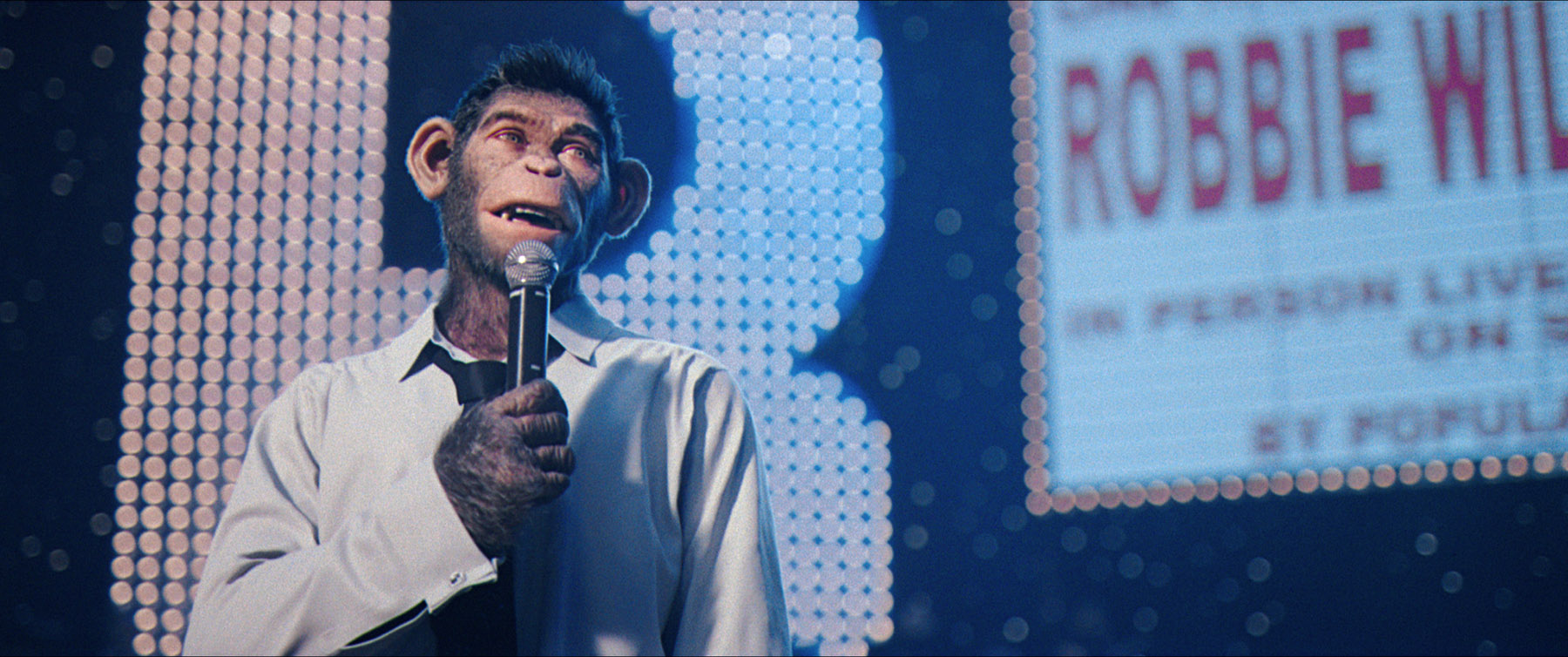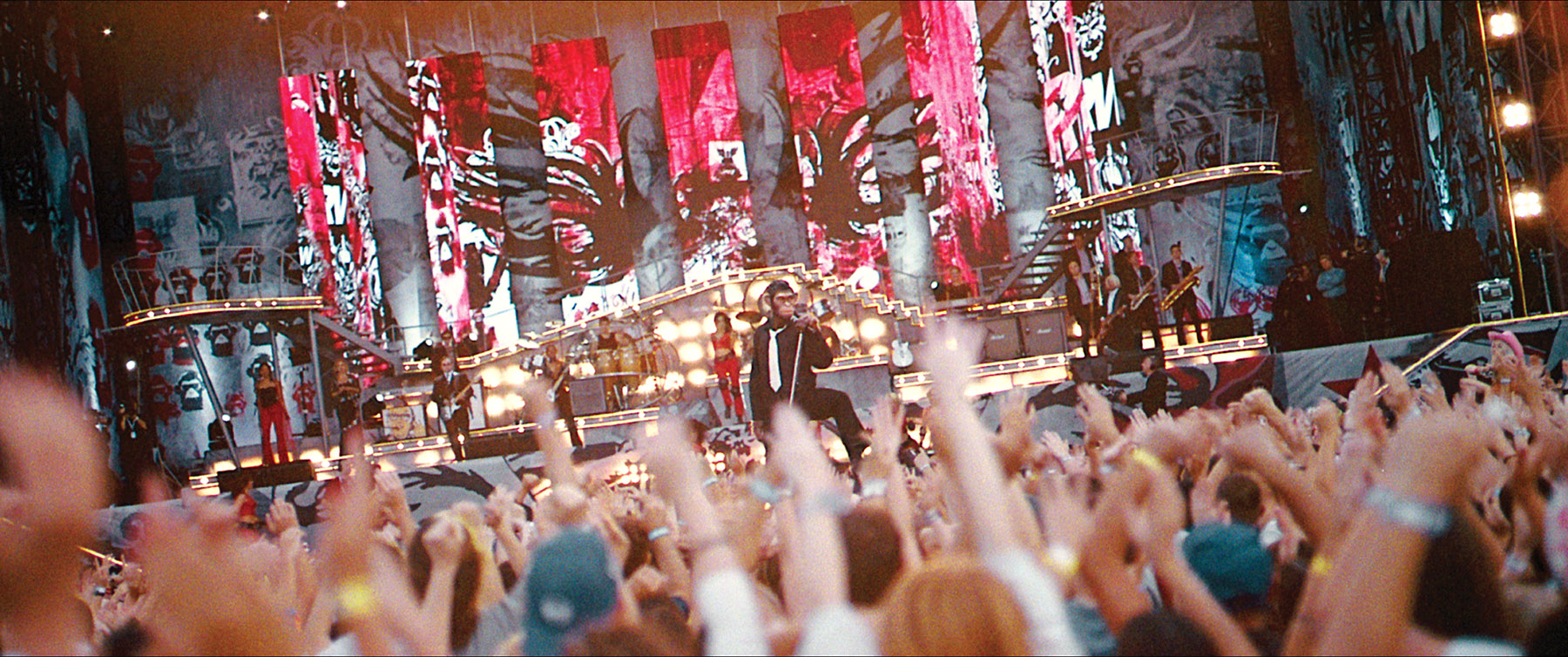
As soon as the words “musician’s biopic” are uttered, we as audience members are within our rights to swear under our breath and let out a deep sigh. The genre’s rote rise-fall-rise pattern — the predictable spiral into some kind of addiction, the montages of concert tours and spinning headlines — are all maddeningly familiar. However, every so often, a film comes along and turns convention on its head. The Greatest Showman director Michael Gracey’s Robbie Williams biopic Better Man is one such.
Former Take That member and currently solo singer Williams has gone on record saying that he often saw himself as a trained chimp, performing at other people’s behest. The trained-chimp metaphor works for a lot of entertainers, hence Gracey decided that a literal interpretation of the idea could make a fine biopic. He was right.
ALSO READ: A tearjerker rescued by ace acting talents
If you can wrap your head around Williams being “played” by a computer-generated imagery chimpanzee who wears pop-star costumes, snorts cocaine, prances around with Williams’ distinct mid-1990s spiky hair and sings Come Undone when he’s dropped from the successful boy band, you’ll be on board with Better Man. Williams is also an executive producer on the film — a potential red flag, but this is an artist who has always worn his heart on his sleeve. The film is brutally honest in a way that Bohemian Rhapsody and Bob Marley: One Love were not. In exchange for permission to use copyrighted material, notably the original songs, filmmakers had to make the artists look good.

Better Man follows Williams — himself voicing Jonno Davies’ motion-capture performance — from his working class Stoke-on-Trent youth to his career peak, playing to 700,000 people at Knebworth Festival over three days in 2003. In between these formative moments, we see how young Robert picked up an appreciation for Rat Pack-style entertaining from his frequently absent father, Peter (Steve Pemberton); the crucial bond between Robert and his grandmother, Betty (Alison Steadman); and how Take That manager Nigel Martin-Smith (Damon Herriman) turned him into “Robbie”, among other career landmarks.
What really sets Better Man apart, though, is the effortlessness of its fantasy as well as the flawlessly rendered music. You don’t have to like or even know who Williams is to enjoy the film. Gracey’s music-infused language is pitched perfectly, and leaning into the monkey business, as it were, lends a bestial, raw physicality to Williams — a physicality that says just as much as his lyrics do. Most of Williams’ best-known songs are dropped into the action in emotional, rather than chronological, order. And the montages are pieced together with such liquid elegance by the film’s five editors that the cuts are often invisible. The script — by theater actor Simon Gleeson, first-timer Oliver Cole and Gracey — isn’t afraid to be as cheeky as Williams himself. The absurdity of seeing a giant chimp engaged in a bit of clandestine carnality in a nightclub serves as a meta commentary on stardom, and on the dangers of getting one’s wish.
ALSO READ: Something for everyone to watch this holiday season
If there’s one moment, however, that could easily win fence-sitters over to the subversive brilliance of Better Man, it’s the glorious one-shot Rock DJ number. Unfolding up and down London’s Regent Street, the sequence shorthands Take That’s rise to fame and recalls From Now On or the swirly, swooping opening number, The Greatest Show, in the Showman film, affirming that Gracey is the ideal filmmaker for the material. Better Man may not be perfect, but it’s a big, creative swing and deserves respect for taking a minute to consider something new.


